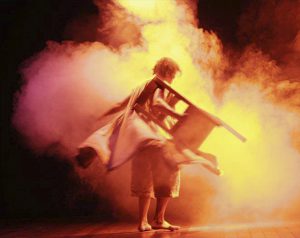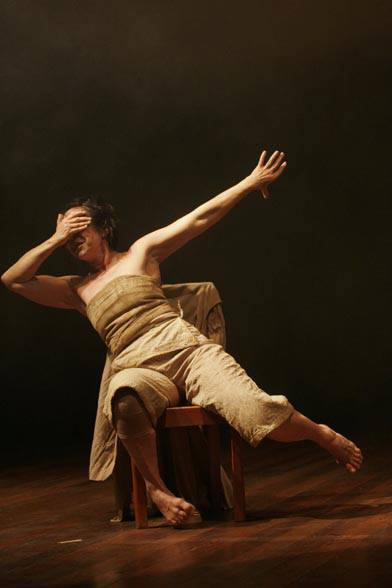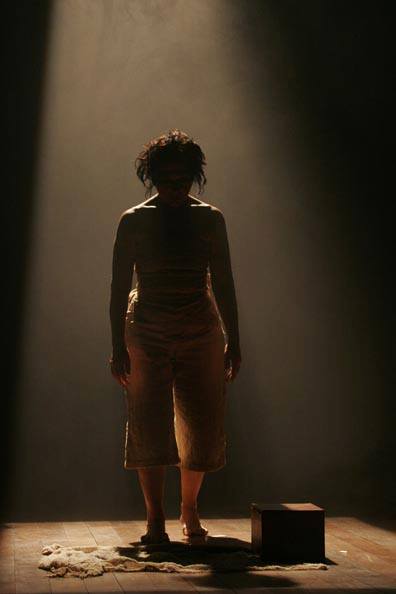Antigone
(2000)

A solo performance by Teresa Ralli
A free adaptation by José Watanabe of the tragedy by Sophocles
Direction: Miguel Rubio Zapata
Production: Socorro Naveda
Technical Coordination: Alejandro Siles
There have been countless adaptations of Sophocles’ Antigone in Europe and Latin America.
Yuyachkani’s approach was clear from the start: to explore and bring the classical myth of Antigone and bring it closer to the Peruvian reality, as a way of invoking universal historical memory in search of clues that might help us understand our own reality.
Antigone tells the story of a brutal war in which brother fought against brother. The king has decreed that Eteocles, the brother who defended the city, will be buried with honors, while Polynices, the rebellious brother, will be condemned to be left to the dogs and vultures. Antigone hears the edict and rebels. She seeks out her sister Ismene, and asks her to help bury her brother’s body. Ismene frightened, refuses, saying that two women cannot anything against the laws of men. Antigone then decides to act alone. She is discovered and sentenced to death.
Over the centuries, Sophocles’ Antigone has been one of the most performed and adapted of the classical Greek tragedies. The play powerfully captures the conflict between the individual and the state, between fundamental human rights and the arbitrary laws of any given society, between the needs of nature and the human arrogance that seeks to control and dominate it. Antigone stands as a declaration of the essential role of civil disobedience against the arbitrariness of political power, while also affirming the importance of the intangible aspects of human life — as part of a natural and finite ecology that cannot be ignored or violated.






